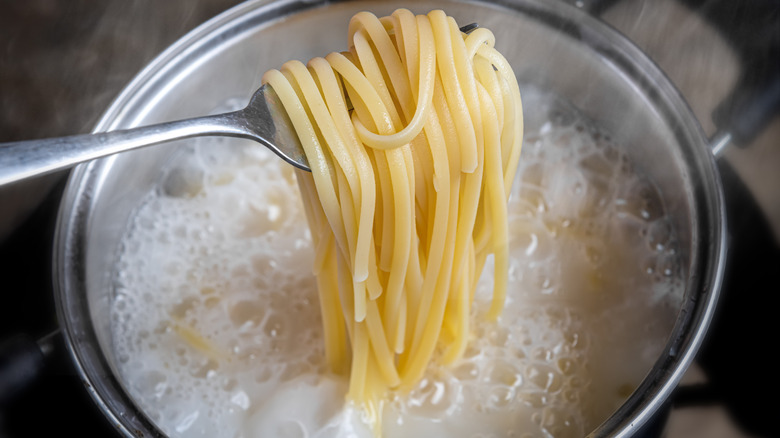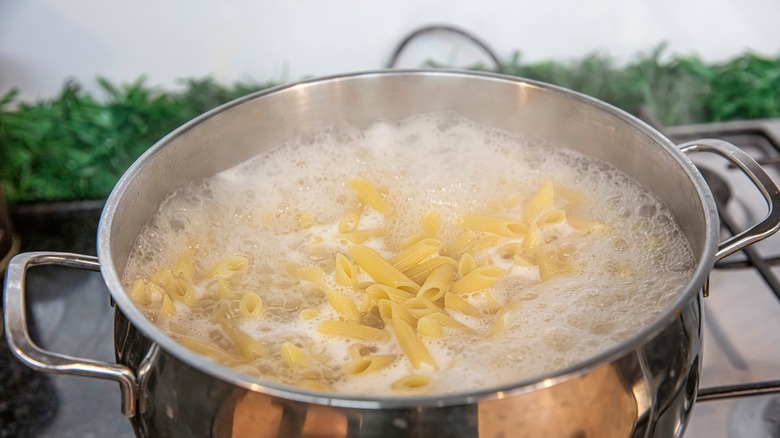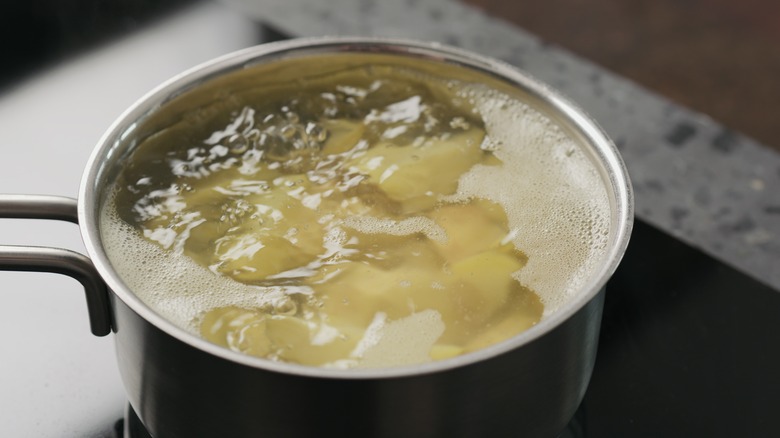Why You Can't Substitute Pasta Water With Fresh Water
Once you've finished cooking your pasta and strained out the noodles, you're left with a pot of cloudy, starchy water. While many see this as waste and pour it down the drain, smart cooks recognize it as something valuable: pasta water, a kitchen secret. This starchy liquid, often dubbed "liquid gold," is a crucial ingredient in various Italian dishes, such as bucatini cacio e pepe pasta, as well as a long list of pasta sauces. It works wonders as a flavor enhancer and a thickener that lends a surprising amount of body to the sauce.
When trying to improve pasta sauce, using plain tap water instead of pasta water has caused quite a bit of frustration for those unaware of the benefits of the latter. While adding more liquid is often the right idea, tap water isn't the solution. To achieve the best results, you need pasta water with its unique properties!
Pasta water is chock-full of starch
As you boil pasta in salted water, it releases starch into the liquid. It's a process you can actually see happening as the pot simmers and the water becomes cloudy from all the dissolved starch. In fact, all that starch is the reason why, when you add pasta water to a sauce, it thickens up as the starch molecules swell up and bind to water. Also, if you were to add it to an oily sauce (which nearly all pasta sauces are), the starch can act as an emulsifier and help the sauce to cling beautifully to the pasta.
Since plain tap water obviously doesn't come with extra starch added, you can't get the same effect with it. All that would happen if you added a tablespoon of water into the sauce is a thinning out of both the flavor and the texture. So the next time you're cooking pasta, save about a cup of the leftover pasta juice in the pot. You never know when you'll need it!
Good substitutes for pasta water
Did you accidentally drain all of your pasta water before reading this article? No worries, you still have options. While it won't perfectly replicate the flavor of pasta water, a small amount of flour (like semolina flour) or cornstarch mixed with water can work wonders as a fast thickening agent. Just combine them in a mixing bowl to create a paste-like slurry, then work it into your sauce. Be cautious, however, and incorporate it slowly. Too much and the sauce might clump up due to the excess starch.
If you have neither cornstarch nor flour on hand and you seriously need a thickener right then, dig around your pantry to find some potatoes. After all, a good amount of a potato's weight is just starch, which you can also leach out and into water by boiling it. Afterward, you should get a cloudy liquid in the pot just like pasta water. Use it to thicken your sauce exactly as you would with pasta water. As for the handful of boiled potatoes you now have? Maybe it's time to make some gnocchi!


